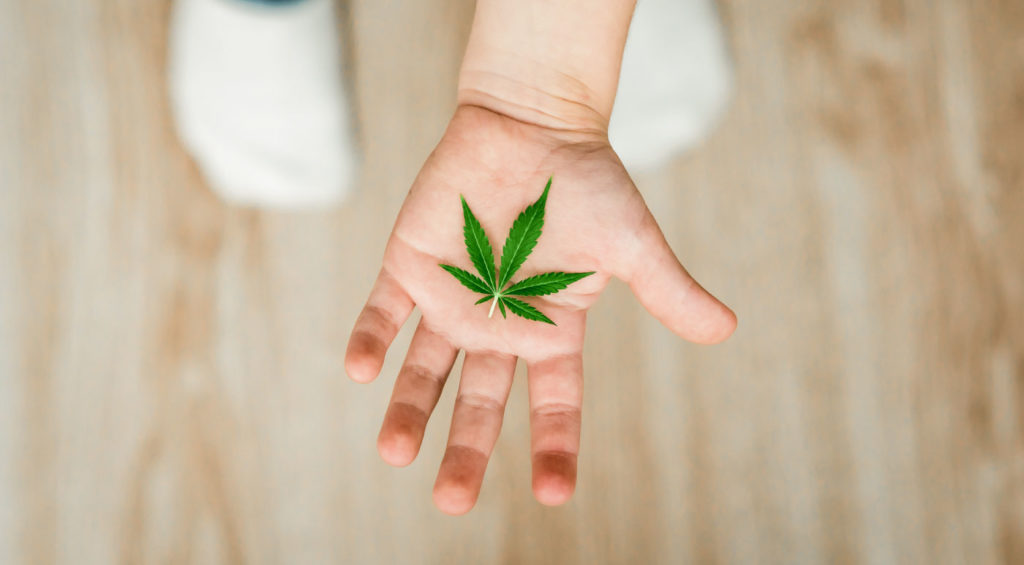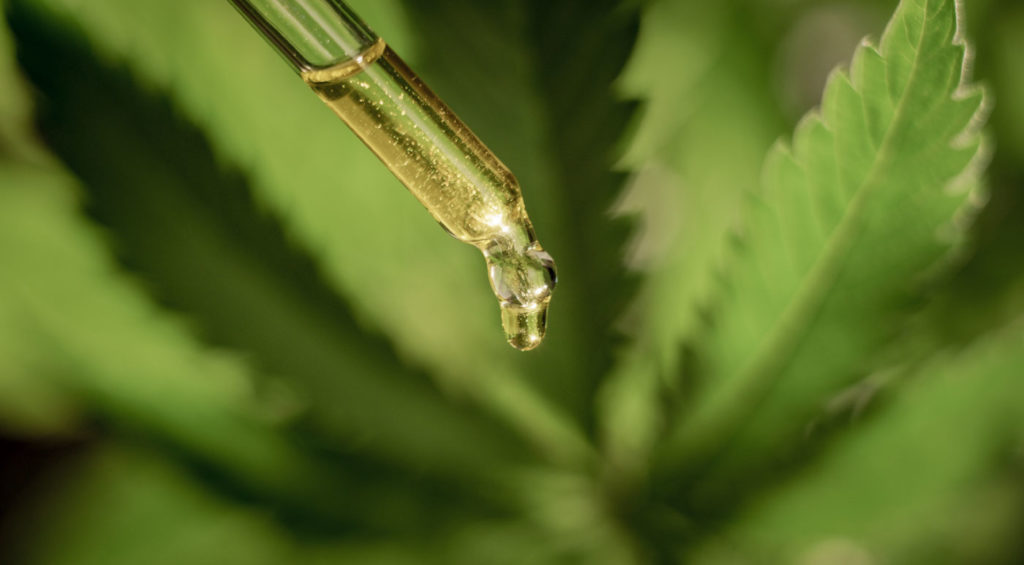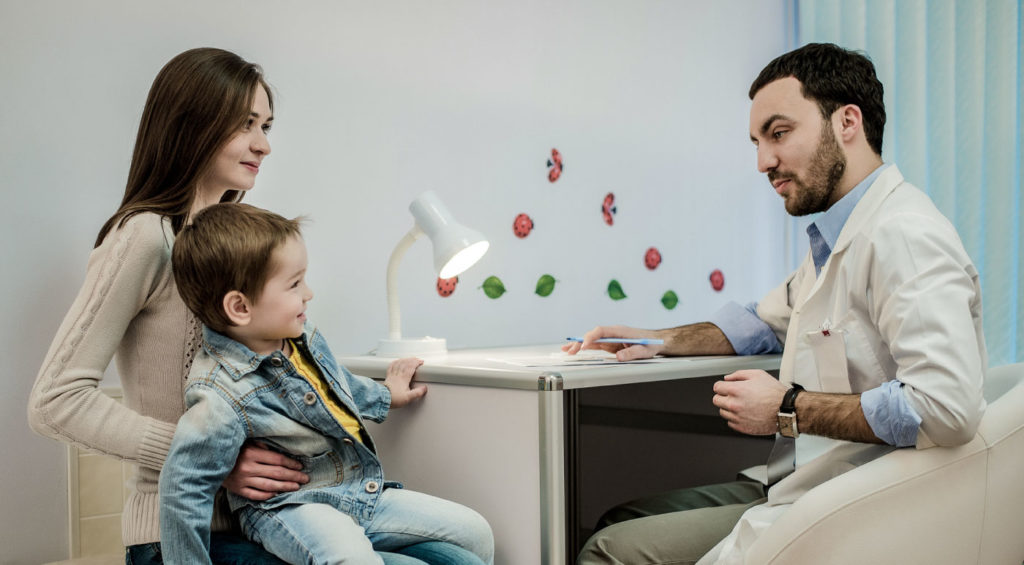
Many adults have been enjoying the benefits of CBD oil for their chronic pain, mental health, and inflammation levels. Given that CBD seems to have so many health benefits for adults, parents are curious about the benefits of using CBD oil for children.
There are many health conditions which conventional medicine does not seem to have the answers for, such as treatment-resistant seizures. Also, some of the treatment options for conditions such as anxiety or Attention Deficit Disorder (ADD) in children may come with many side effects, including addiction potential. Certain medications also may seem too harsh for children.
Parents have questions about CBD oil for children: Is it safe? Is CBD useful for any medical conditions in children? Is it legal to give my child CBD?
Fortunately, we have the answers to those questions. In this article, we will discuss all your burning questions about CBD oil for children.
Table of Contents
- CBD Oil for Children: Are There Any Safety Concerns?
- Will CBD Oil Make My Child High?
- How Can CBD Help My Child?
- Is It Legal to Give Children CBD?
- CBD Oil for Children: Final Thoughts
CBD Oil for Children: Are There Any Safety Concerns?
There have been numerous clinical trials on CBD, and the consensus is that CBD is safe to use, even for children, at doses up to 1500 mg. Keep in mind, the research on CBD is just beginning. However, the medical community agrees that CBD is a safe product. There have even been clinical trials specifically for CBD and children regarding use as treatment for medical conditions, like forms of epilepsy.
There is no risk of overdosing with CBD, although there are some potential side effects. These include:
- Diarrhea
- Fatigue
- Dry mouth
- Changes in appetite
- Medication interactions
As a parent, you should always keep in mind that each child may react differently to CBD products. While some children may experience no side effects at all, other children may notice some of the side effects mentioned above. However, the important information piece to take home is that you should not worry about putting your child at risk with using CBD.
Since CBD may interact with some medications, speaking to your pediatrician before using CBD is your best bet. Keep in mind, if your pediatrician is not familiar with CBD or its medication interactions, ask him or her who they recommend for a consultation.
Will CBD Oil Make My Child High?

The question of whether CBD could make a child high is a common one. When some people think of CBD, they associate it with marijuana, which many know have psychoactive effects.
To answer this question, let’s look at where CBD is derived from, how it differs from marijuana, and the effects it has on the brain.
CBD is not derived from the marijuana plant. It is sourced from the industrial hemp plant, which is in the same family as marijuana, as they are both Cannabis plants. The difference between these two plants are the levels of different cannabinoids within them.
Cannabinoids are the active constituents in Cannabis plants and include CBD (or cannabidiol) and THC (or tetrahydrocannabinol). The marijuana plant contains both CBD and THC in relatively high amounts. It is the THC content in marijuana products which causes a person to feel “high.”
On the other hand, the industrial hemp plant contains high levels of CBD, but contains only traces of THC. Pure CBD oil that is legally sold in the United States is extracted from these plants and further purified to remove the remaining THC to less than 0.3%. The THC content is well below the amount of THC required to cause psychoactive effects.
Always ensure you are buying CBD oil from a reputable source who uses third-party testing. This testing ensures what is listed on the label, including the CBD and THC amounts, accurately matches what is inside the product. You can also use sites like this one to help you find a high-quality CBD product.
CBD activates the endocannabinoid system, which runs through our brains, bodies, and skin. It is stimulated through different receptors, such as the CB1 and CB2 receptors. CBD binds to both of these receptors and can influence pain levels, brain activity, mood, behaviors, inflammation, and more. Although CBD may impact the brain through the endocannabinoid system, it does not cause a person or child to feel high.
Let’s see what we know so far about what the research says on CBD and medical conditions.
How Can CBD Help My Child?

Parents are turning to alternative treatments when they do not feel that conventional therapies are quite doing the trick for their children. Medical conditions in which parents have had success using CBD to treat include:
- Seizures
- Attention Deficit Disorder
- Autism
- Anxiety
The most substantial evidence for the use of CBD is with seizures, including treatment-resistant seizures. Studies show that CBD use is effective in managing seizures in both adults and children.
There have been clinical trials on Dravet syndrome and Lennox-Gastaut syndrome, two severe forms of epilepsy that can be life-threatening in children. These studies show that CBD oil significantly reduced both the severity and frequency of these seizures. The participants did experience some mild-to-moderate side effects such as fatigue, dizziness, and sleepwalking.
Because of this research, the Food and Drug Administration (FDA) has approved Epidiolex, a pharmaceutical-grade pure CBD oil product in treatment-resistant seizures.
There have not been many controlled, randomized studies on CBD for autism or Attention Deficit Disorder. Therefore, at this stage, the evidence is mostly anecdotal. Early research on animals does show that CBD may help to increase oxytocin, a bonding hormone in the brain that tends to be lower in people with autism. Although this is a start, more research on the effects of CBD in Attention Deficit Disorder (ADD) and autism is needed.
The evidence on CBD for anxiety is stronger, and the Journal of Neurotherapeutics reports that CBD is useful for reducing anxiety in both humans and animals.
Although there is still much more research to be done on CBD for these medical conditions, the evidence so far is promising. Given that the FDA has already approved a CBD oil product for certain medical conditions, it is well within reason that the FDA may approve CBD oil for more health concerns in the near future.
Is It Legal to Give Children CBD?

Cannabis products containing THC higher than 0.3% are still illegal in most of the United States. Some states have made medical cannabis legal for use in certain medical conditions. However, CBD products and the use of CBD oil are federally legal throughout the United States.
CBD’s legal status changed relatively recently, after the most recent Farm Bill which has made the farming of industrial hemp (containing less than 0.3% THC) legal. Any Cannabis plants which contain over 0.3% THC are considered to be marijuana, which is still federally illegal.
As previously mentioned, the Food and Drug Administration (FDA) has even approved a CBD product, Epidiolex, for treatment-resistant seizures.
CBD Oil for Children: Final Thoughts
Both parents and the medical community are recognizing the health benefits that come from using CBD oil. Research continues on the CBD’s place in numerous medical conditions, especially regarding those not yet in their teens. However, the general consensus is that CBD is a safe and effective alternative for parents who are hesitant about treating their child with more common brand medication, known to have much more serious side effects.
